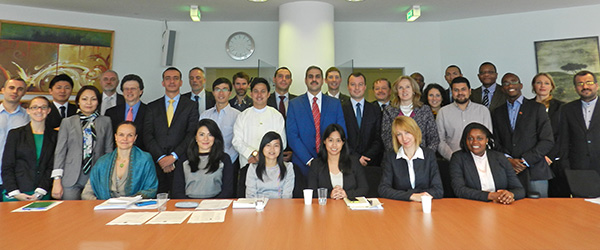
VCDNP and the James Martin Center for Nonproliferation Studies (CNS) held their eighth intensive short course on Nuclear Non-Proliferation and Disarmament from 29 September to 3 October 2014. The course brought together twenty-five diplomats, government officials, and academics to the VCDNP office in Vienna, Austria. The participants represented twenty-three states from Africa, the Middle East, Asia, South America and other regions, with many coming from their national capitals or representing their state missions in Vienna or New York.

The timing of the course was particularly relevant, just following the IAEA General Conference (22-26 September 2014) and preceding the IAEA Safeguards Symposium (20-24 October 2014) and the International Conference on the Humanitarian Impact of Nuclear Weapons (8-9 December 2014). The course also addressed some of the key non-proliferation issues on the international agenda, such as Iran's nuclear program and the efforts by the United States, United Kingdom, France, China, Russia, and Germany to negotiate a deal by 24 November 2014; the developments and prospects of a Middle East zone free of weapons of mass destruction, (WMDFZ) and new disarmament initiatives, in particular, those related to the humanitarian impact of nuclear weapons. The course concluded with a panel discussion looking toward the 2015 Review Conference of the Treaty on the Non-Proliferation of Nuclear Weapons. Panelists Ambassador Alexander Kmentt (Austria), Gaukhar Mukhatzhanova (CNS), Dr. William Potter (CNS), Elena Sokova (VCDNP), and Dr. Nikolai Sokov (VCDNP), discussed current events that may affect the 2015 Review Conference, including recent developments in the Ukraine, a stall in the arms control negotiations between the United States and Russia, stagnation of nuclear disarmament talks, failure to convene a conference on the WMDFZ in the Middle East, and the growing support for the humanitarian initiative.
View the agenda for the 29 September — 3 October 2014 course



